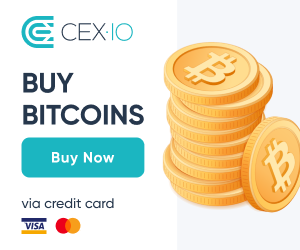
Top Trends in Crypto Gaming – What Will Change in 2024
With the constant progress of the crypto industry, it is no wonder that so many new advanced concepts are joining the ship and aiming to make the field better, faster, and safer. It has been over 15 years since the first cryptocurrency was developed and launched, and looking back, the evolution of the crypto industry is more than surprising.
And as many of us know, crypto has so many use cases that you can’t even think of them all. Blockchain can streamline processes in numerous industries, such as retail, politics, healthcare, and many more. One of these use cases is gaming, and the things blockchain technology can do for this industry can propel the gaming field in no time.
Thus, how can blockchain change games, and what are the most popular movements you will likely notice during 2024?
Top Blockchain Gaming Trends for 2024
Blockchain-based games have robust security features, improved gameplay, and numerous earning opportunities for worldwide crypto gaming enthusiasts. However, considering the evolution of other concepts along with blockchain and gaming, some features and technologies might change the face of blockchain games in 2024.
Wide Adoption of NFTs
NFTs (Non-Fungible Tokens) have been around for a few years, and their popularity has grown significantly. The main feature of NFTs is that they prove ownership like no other asset could, primarily because they are developed and stored on a blockchain (usually Ethereum, Polygon, Cardano, Solana, but the list goes on).
Thanks to this feature, developers found a way to integrate NFTs into blockchain-based games, which only came with advantages. Through the integration of NFTs, players can now earn such digital collectibles as rewards. Then, they can exchange, sell, or purchase NFTs on integrated NFT marketplaces or other specialized platforms, such as OpenSea, Rarible, or SuperRare.
The gaming industry could not leave behind the wide adoption of NFTs, and although we are now experiencing a slight decrease in the popularity of non-fungible tokens, blockchain games will continue to leverage NFTs to develop advanced applications in 2024, too. This might also contribute to the NFTs regaining the popularity they used to have some years ago.
A strong Focus on Communities
For blockchain games and crypto projects in general, community is as important as developing a high-quality product. Without a large and engaged community around your project, it is highly possible that your platform or app will not succeed.
Thus, in 2024, blockchain-based games will also focus on growing their communities and maintaining their user base. The ways in which you can keep your players close are countless.
For instance, crypto games might offer various incentives so that users will keep returning to the platforms to claim and use rewards.
Furthermore, new projects might organize special events, often token presales (in the new projects’ case) and airdrops or giveaways (for both new and established games).
Such events have a high chance of growing the user base, as players can purchase a game’s native token for a surprisingly low price or even get tokens for free or for completing some extremely simple tasks (following the project’s social media accounts or referring friends).
Using Advanced Technologies for an Engaging Gaming Experience
As we mentioned earlier, many technologies have had a surprising evolution, and blockchain games already know how important it is to leverage advanced features to improve their gameplay.
Thus, in 2024, many users might have the chance to try out new games that implement advanced technologies, such as VR (Virtual Reality), AR (Augmented Reality), and AI (Artificial Intelligence).
Just imagine a blockchain game that uses advanced AR and AI features to create an immersive gaming experience. SpaceCatch is a great example, welcoming users to a world invaded by AI-driven aliens. Through AR, players will have the opportunity to discover the game’s universe blended with real-life surroundings.
Furthermore, advanced artificial intelligence features will allow for the customization of the gaming experience, which can contribute to the overall experience with the game, thus also ensuring users that a particular project is the right choice for them.
Strong In-Game Economies
Blockchain-based games have another bright feature that makes them better and more appealing: in-game crypto economics. In 2024, many games will adopt crypto economics, developing native tokens that operate on decentralized networks (blockchains).
In blockchain-based games, native tokens can be earned by completing various tasks or quests, and users can then trade them for other in-game assets (e.g., NFTs). Furthermore, they can use them in integrated marketplaces to purchase various things that can improve their gaming experience and lead to more wins and greater rewards.
Implementing an in-game crypto economic model can contribute to maintaining a user-centered approach, increasing the chances of users choosing a game over another.
Furthermore, this trend comes with many advantages for developers, too. Building an in-game crypto economy can provide new monetization opportunities for developers, encouraging them to create and sell in-game assets.
In Conclusion
Blockchain-based games have grown in popularity over the past years, and those interested in this field have much to win by sticking to these new concepts. The following years will bring many positive changes in the blockchain gaming world.
With the help of advanced technologies and extensive expertise in the blockchain industry, developers will manage to build surprising games, offering intriguing gameplay and multiple earning opportunities.
AR (Augmented Reality), VR (Virtual Reality), and AI (Artificial Intelligence) will rule the blockchain gaming field in 2024, allowing for the development of immersive gaming experiences and contributing to developing customized versions of the gameplay.
Along with advanced technologies, we might see a growth in the popularity of NFTs and crypto-based in-game economies, and this will also improve users’ experience and encourage them to discover more games and features. Besides, the integration of specialized marketplaces will contribute to keeping users intrigued and motivated to play a specific game.

